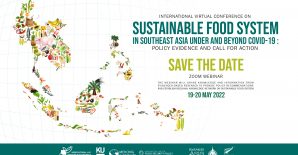News
Trade possibilities spurring rapprochement between Tajikistan and Uzbekistan
Entrepreneurs from approximately 120 Tajik companies attended a trade fair in Uzbekistan in reciprocation of a similar delegation of Uzbek businesspeople to Tajikistan in the spring. One Tajik entrepreneur mentioned Uzbekistan’s proximity and sizable population as compelling reasons for opening business ventures there. Bilateral trade between the countries in the first nine months of 2017 is already close to surpassing 2016’s total of $197 million. – Eurasianet
Outlook on poverty reduction in Tajikistan remains positive
Real GDP growth in Tajikistan decelerated from 6.6 percent in the first half of 2016 to 6.0 percent in 2017, according to the World Bank. Growth was led by an increase in net exports and private consumption, which was supported by recovering remittances. Tajikistan’s financial sector remains depressed and a recent review revealed that banks are undercapitalized. – AKIPress
Uzbekistan and Kyrgyzstan undertake resolving their water disputes
Energy firms in Kyrgyzstan and Uzbekistan are preparing plans to finance the Kambarata-1 hydroelectric plant in Kyrgyzstan. The proposed dam was opposed by the previous Uzbek president over concerns that it would hinder Uzbek farmers’ access to irrigation water. The change in position by the new authorities in Uzbekistan is providing a push to the stalled Kambarata proposal, which found few willing investors or reliable international partners. – Jamestown Foundation
Japan, Turkmenistan share experience in reducing natural disaster risks
The Japan International Cooperation Agency (JICA) held a joint workshop with the Turkmen Academy of Sciences to share knowledge about seismic disaster risk reduction. JICA will provide Turkmenistan with modern equipment and facilities in addition to data processing training in Japan for Turkmen experts. Turkmenistan is located on an active seismic zone and experienced a severe earthquake in 1948 that dealt extreme damage to its largest city Ashgabat. – Trend.az
Turkmenistan's currency slumps on black market amid economic crisis
Radio Free Europe reports that black market prices for the Turkmen manat have jumped to 9 manats per dollar this week from an average of 7.5 manats per dollar in the previous month. The official rate set by the Turkmen central bank is 3.5 manats per dollar. The Turkmen economy has been heavily affected by downturns in global prices for natural gas, its main export. – RFE/RL
What a 25-fold increase in Turkmen water prices will mean
The Turkmen government will eliminate household subsidies on tap water starting on November 1 following a presidential decree issued earlier this month. Turkmen citizens will receive a free allotment of 7.5 cubic meters per month (approximately 1,980 gallons) and will be charged a marginal rate thereafter that is 25 times the current rate. – The Diplomat
Analysis & Other Information
Dream bigger: building the middle class in Central Asia
Lilia Burunciuc, Regional Director for Central Asia at the World Bank, writes about positive economic changes in the region in recent years. She cites the drastic reduction in overall poverty rates since independence as a clear sign that economic growth has benefited the general population in Central Asia. Burunciuc believes that the next step is to cultivate a stable middle class through continued economic development, improved access to finance, and strengthening household resilience to shocks. – World Bank
Why investors can't get enough of Tajikistan's debt
International investors are increasingly buying bonds from higher-risk developing countries such as Tajikistan, according to the New York Times. Low interest rates in traditionally-preferred markets are making higher-yield investments in emerging economies more attractive to lenders. Tajikistan’s recent $500 million bond offering was noted by the article as an especially unusual example, considering the small size of the Tajik economy. – New York Times
Kyrgyzstan holds an election that was not a foregone conclusion
Sooronbai Jeyenbekov was elected the new president of Kyrgyzstan earlier this month in an election The Economist called competitive but flawed. Jeyenbekov, who was closely linked with outgoing president Almazbek Atambayev, defeated his 11 rivals with 55 percent of the vote. Despite allegations of electoral misconduct favoring the winner, the closest challenger Omurbek Babanov eventually conceded defeat. – The Economist
Publications & Reports
Local knowledge-based water management and irrigation in the western Pamirs
Dorre (2018). International Journal of Environmental Impacts, 1(3), pp. 254-266.
The land-water-food nexus: expanding the social-ecological system framework to link land and water governance
Klumper, I. Theesfeld (2017). Resources-Basel, 6(3), No. 28.
Europe and Central Asia Economic Update, October 2017: Migration and Mobility
World Bank (2017).
Archived issues of the news digest can be found on the Central Asia page under the ReSAKSS Asia website: http://resakss-asia.org/regions/central-asia. A link to the newsletter can be found under Blog Posts.
The articles included in this news digest have been generated from online sources. Any opinions stated herein are not representative of, or endorsed by, the International Food Policy Research Institute or its partners.



